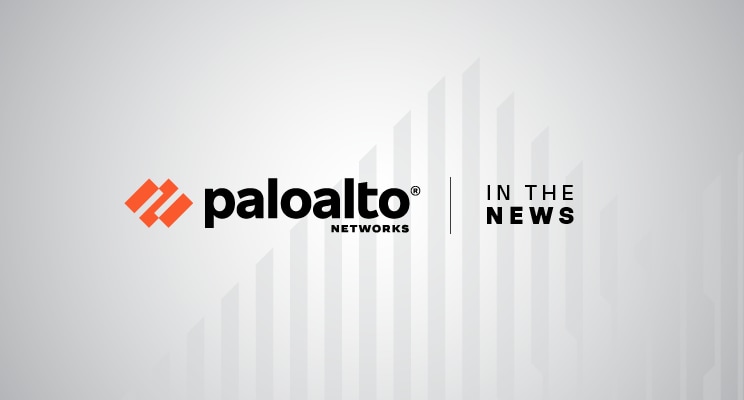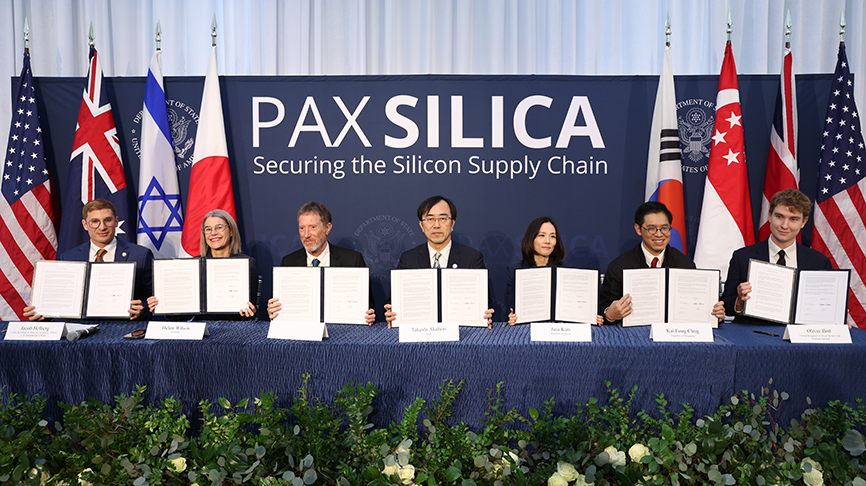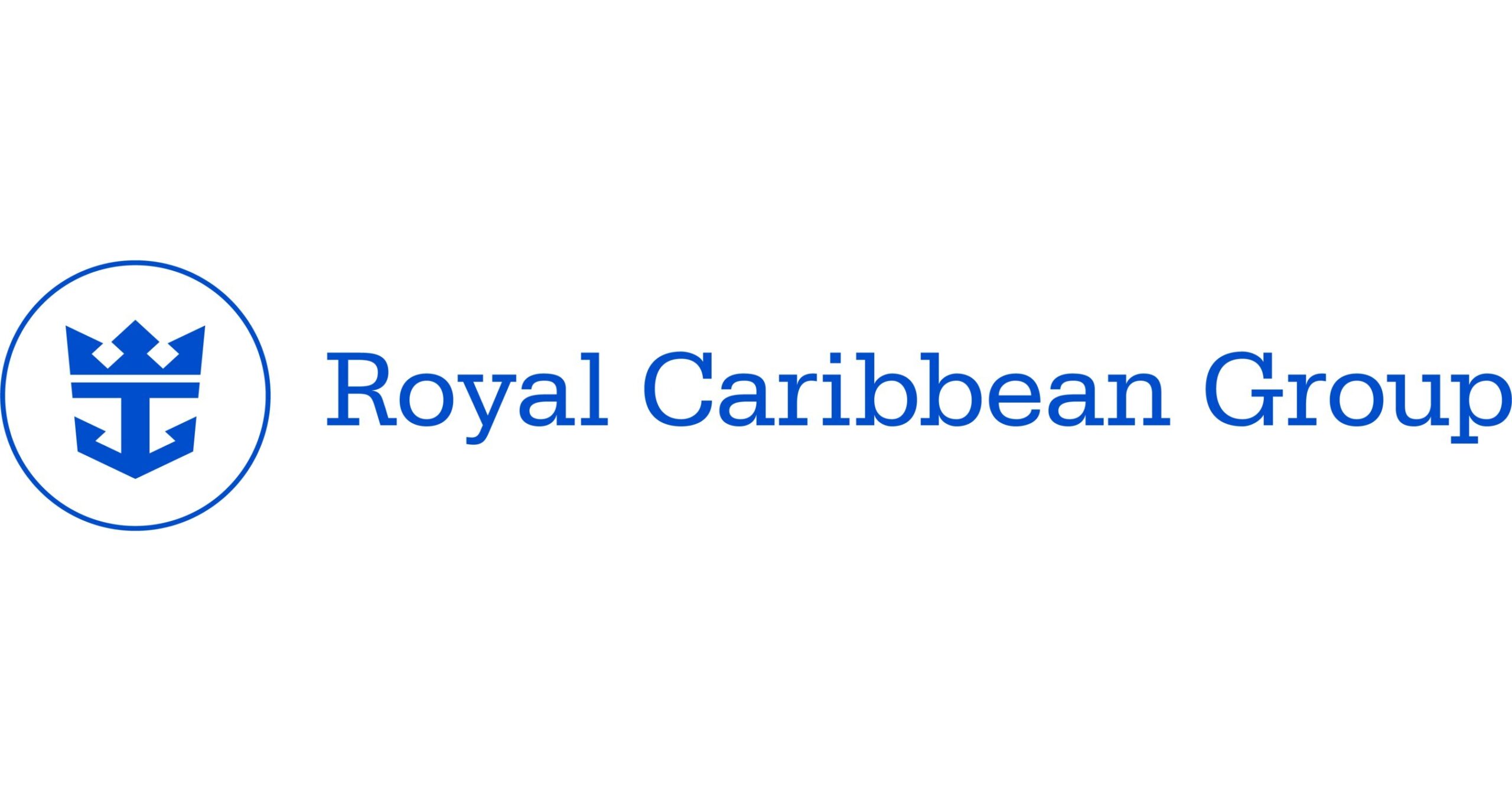Fourth quarter exceeds guidance, resulting in over 30% earnings growth in 2025
WAVE season off to a record start, propelling momentum for 2026
Adjusted EPS in 2026 are expected to be $17.70 to $18.10
Expanding vacation portfolio with Royal Caribbean’s new Discovery Class, and 10 additional ships for Celebrity River Cruises
MIAMI, Jan. 29, 2026 /PRNewswire/ — Royal Caribbean Group (NYSE: RCL) today reported 2025 Earnings per Share (“EPS”) of $15.61 and Adjusted EPS of $15.64. These results were better than the company’s guidance primarily due to more favorable revenue and better performance from joint ventures. Looking ahead, demand remains strong and the company expects Adjusted EPS to be in the range of $17.70 to $18.10 per share in 2026.
“2025 was an outstanding year, and the momentum is further accelerating into 2026,” said Jason Liberty, Chairman and CEO, Royal Caribbean Group. “WAVE is off to a great start and we continue to see strong and growing preference for our leading brands and differentiated vacation experiences. We expect another strong year of financial performance with both revenue and earnings growing double digits, and we remain on track to achieve our Perfecta goals by 2027,” added Liberty.
“We are shaping the future by further investing in game-changing vacation experiences. The new Discovery Class for Royal Caribbean, the expansion of Celebrity River Cruises, and five new exclusive destinations launching by 2028 strengthen our long-term growth trajectory,” added Liberty. “We are also creating long-term value by connecting our innovative ships, differentiated exclusive destinations, cross-brand loyalty program, and disruptive technologies into a single vacation ecosystem. We are attracting new guests and driving repeat engagement, turning the vacation of a lifetime into a lifetime of vacations.”
Full Year 2025 Results:
- Gross Margin Yields increased 8.5% as-reported. Net Yields increased 3.8% as-reported and 3.7% in Constant Currency.
- Gross Cruise Costs per Available Passenger Cruise Day (“APCD”) decreased 0.6% as-reported. Net Cruise Costs (“NCC”), excluding Fuel, per APCD increased 0.1% as-reported and decreased 0.1% in Constant Currency.
- Total revenues were $17.9 billion, Net Income was $4.3 billion or $15.61 per share, Adjusted Net Income was $4.3 billion or $15.64 per share, and Adjusted EBITDA was $7.0 billion.
Full Year 2026 Outlook:
- Net Yields are expected to increase 2.1% to 4.1% as-reported and 1.5% to 3.5% in Constant Currency. This includes 30 bps of headwind from itinerary modifications in China.
- NCC, excluding Fuel, per APCD are expected to be 0.4% to 1.4% as-reported and flat to up 1.0% in Constant Currency.
- Adjusted EPS is expected to be in the range of $17.70 to $18.10, representing a CAGR of 23% over the first two years of Perfecta. Perfecta is the company’s multi-year financial program targeting 20% earnings CAGR from 2024 to 2027 and ROIC in the high teens by 2027.
- The company expects double-digit revenue and Adjusted EPS growth in 2026, driven by 6.7% higher capacity, as well as anticipated yield growth.
Fourth Quarter 2025 Results
Net Income for the fourth quarter of 2025 was $0.8 billion or $2.76 per share compared to Net Income of $0.6 billion or $2.02 per share for the same period in the prior year. Adjusted Net Income was $0.8 billion or $2.80 per share for the fourth quarter of 2025 compared to Adjusted Net Income of $0.4 billion or $1.63 per share for the same period in the prior year. The company also reported total revenues of $4.3 billion and Adjusted EBITDA of $1.5 billion.
Gross Margin Yields increased 9.2% as-reported, and Net Yields increased 3.1% as-reported (2.5% in Constant Currency), when compared to the fourth quarter of 2024. Load factor for the quarter was 108%.
Gross Cruise Costs per APCD decreased 4.5% as-reported, compared to 2024. NCC, excluding Fuel, per APCD decreased 5.8% as-reported and 6.3% in Constant Currency, when compared to 2024.
Update on Bookings and Onboard Revenue
Since the last earnings call, Cyber Sales and the onset of WAVE season have resulted in the highest seven booking weeks in the company’s history. The company has approximately two-thirds of 2026 capacity booked, which is within historical ranges and at record rates, and the company continues to see elevated close-in bookings. Guest spending onboard and pre-cruise purchases continue to exceed prior years driven by greater participation at higher prices. Nearly 50% of onboard revenue in 2025 was booked pre-cruise, with 90% of pre-cruise purchases being made through digital channels. Looking to 2026, the share of booked guests who have purchased onboard revenue pre-cruise is up year-over-year.
“We’re very pleased by the strength we’re seeing across our portfolio as consumers continue to prioritize our vacation experiences,” said Naftali Holtz, Chief Financial Officer, Royal Caribbean Group. “We continue to see net yield growth for key products, including the Caribbean, as our investments continue to differentiate us and strengthen our leadership in the region,” added Holtz.
First Quarter 2026
Net Yields are expected to increase 2.4% to 2.9% as-reported and 1.0% to 1.5% in Constant-Currency as compared to 2025. This includes an impact of 30 bps from itinerary modifications in China.
NCC, excluding Fuel, per APCD, is expected to increase 1.7% to 2.2% as-reported and 0.9% to 1.4% in Constant-Currency as compared to 2025.
Based on current fuel pricing, interest rates, currency exchange rates and the factors detailed above, the company expects first quarter Adjusted EPS to be in the range of $3.18 to $3.28.
Expanding Vacation Portfolio
Earlier today, Royal Caribbean announced a series of agreements with the Chantiers de l’Atlantique shipyard in Saint Nazaire, France to secure the construction of its highly anticipated Discovery Class ships that will redefine how Royal’s guests experience the world. The agreements include two firm ship orders with options for four additional ships. The first ship in the class is set to debut in 2029, while the second ship is scheduled to be delivered in 2032.
In addition, Celebrity Cruises announced a commitment for 10 new ships that will expand its river cruise fleet to 20 vessels by 2031. Celebrity River Cruises is Royal Caribbean Group’s new premium river cruise vacation offering that will launch in 2027 and take guests to historic cities on the world’s most iconic rivers.
“Today’s announcements mark an exciting step forward in expanding our vacation portfolio across ocean and river,” said Jason Liberty, Chairman and CEO, Royal Caribbean Group. “With Discovery Class, we’re building a new platform with Chantiers de l’Atlantique that will advance next-generation innovation and sustainability while taking our guests to extraordinary destinations around the world. And with the next phase of Celebrity River Cruises, we’re extending our vacation ecosystem into iconic rivers and historic cities – expanding into more geographies and itineraries over time while staying true to the elevated, guest-first experience Celebrity is known for. Together, these moves create more reasons for guests to vacation with us more often, for more occasions, and across our family of brands.”
Fuel Expense
Bunker pricing, net of hedging, for the fourth quarter was $667 per metric ton and consumption was 439,000 metric tons.
The company does not forecast fuel prices and its fuel cost calculations are based on current at-the-pump prices, net of hedging impacts. Based on today’s fuel prices, the company has included $275 million of fuel expense in its first quarter guidance at a forecasted consumption of 436,000 metric tons, which is 66% hedged via swaps. Forecasted consumption is 60%, 47%, and 26% hedged via swaps for 2026, 2027, and 2028, respectively. The annual average cost per metric ton of the hedge portfolio is approximately $474, $393, and $416 for 2026, 2027, and 2028, respectively.
The company provided the following guidance for the first quarter and full year 2026:
|
FUEL STATISTICS
|
First Quarter 2026
|
Full Year 2026
|
|
Fuel Consumption (metric tons)
|
436,000
|
1,762,000
|
|
Fuel Expenses
|
$275 million
|
$1,173 million
|
|
Percent Hedged (fwd. consumption)
|
66.0 %
|
60.0 %
|
|
|
GUIDANCE
|
As-Reported
|
Constant Currency
|
|
First Quarter 2026
|
|
Net Yields vs. 2025
|
2.4% to 2.9%
|
1.0% to 1.5%
|
|
Net Cruise Costs per APCD vs. 2025
|
0.2% to 0.7%
|
(0.5%) to 0.0%
|
|
Net Cruise Costs per APCD ex. Fuel vs. 2025
|
1.7% to 2.2%
|
0.9% to 1.4%
|
|
Full Year 2026
|
|
Net Yields vs. 2025
|
2.1% to 4.1%
|
1.5% to 3.5%
|
|
Net Cruise Costs per APCD vs. 2025
|
(0.3%) to 0.7%
|
(0.6%) to 0.4%
|
|
Net Cruise Costs per APCD ex. Fuel vs. 2025
|
0.4% to 1.4%
|
0.0% to 1.0%
|
|
|
|
|
GUIDANCE
|
First Quarter 2026
|
Full Year 2026
|
|
APCDs
|
13.7 million
|
56.9 million
|
|
Capacity change vs. 2025
|
8.5 %
|
6.7 %
|
|
Depreciation and amortization
|
$455 to $465 million
|
$1,890 to $1,900 million
|
|
Net Interest, excluding loss on extinguishment of debt
|
$245 to $255 million
|
$990 to $1,000 million
|
|
Adjusted EPS
|
$3.18 to $3.28
|
$17.70 to $18.10
|
|
|
SENSITIVITY
|
First Quarter 2026
|
Full Year 2026
|
|
1% Change in Net Yields
|
$36 million
|
$156 million
|
|
1% Change in NCC excluding Fuel
|
$18 million
|
$73 million
|
|
First Quarter 2026
|
Full Year 2026
|
|
1% Change in Currency
|
$5 million
|
$25 million
|
|
10% Change in Fuel prices
|
$13 million
|
$57 million
|
|
100 basis pt. Change in SOFR
|
$1 million
|
$12 million
|
|
|
|
Exchange rates used in guidance calculations
|
|
|
GBP
|
$1.34
|
|
|
AUD
|
$0.67
|
|
|
CAD
|
$0.72
|
|
|
EUR
|
$1.17
|
|
Liquidity
As of December 31, 2025, the Group’s liquidity position was $7.2 billion, which includes cash and cash equivalents and undrawn revolving credit facility capacity.
During the fourth quarter of 2025, the company purchased 1.8 million of its shares for a total of $504 million. The company completed the prior $1 billion share repurchase program, authorized in February 2025 and currently has $1.8 billion remaining under its current program authorization.
The company noted that as of December 31, 2025, the scheduled debt maturities for 2026, 2027, 2028, 2029 and 2030 were $3.2 billion, $2.6 billion, $3.2 billion, $1.1 billion, and $1.1 billion respectively.
Capital Expenditures and Capacity Guidance
Capital expenditures for the full year 2026 are expected to be approximately $5 billion, based on current foreign exchange rates and are predominantly related to the company’s new ship order book. The company expects to take delivery of Legend of the Seas in the second quarter of 2026 and has committed financing in place. Non-new ship related capital expenditures are expected to be $1.8 billion, a significant portion of which includes the company’s previously announced private destinations under development including Perfect Day Mexico.
Capacity changes for 2026 are expected to be 6.7% compared to 2025. Capacity changes for 2027, 2028, and 2029 are expected to be 4%, 6%, and 7%, respectively. These figures do not include potential ship sales or additions that the company may elect in the future.
Conference call scheduled
The company has scheduled a conference call at 10 a.m. Eastern Time today. This call can be heard, either live or on a delayed basis, on the company’s investor relations website at www.rclinvestor.com.
Definitions
Selected Operational and Financial Metrics
Adjusted Earnings per Share (“Adjusted EPS”) is a non-GAAP measure that represents Adjusted Net Income attributable to Royal Caribbean Cruises Ltd. (as defined below) divided by weighted average shares outstanding or by diluted weighted average shares outstanding, as applicable. We believe that this non-GAAP measure is meaningful when assessing our performance on a comparative basis.
Adjusted EBITDA is a non-GAAP measure that represents EBITDA (as defined below) excluding certain items that we believe adjusting for is meaningful when assessing our profitability on a comparative basis. For the periods presented, these items included (i) other income; (ii) restructuring charges and other initiative expenses; (iii) equity investment impairment, recovery of losses, and other; and (iv) impairment losses.
Adjusted EBITDA Margin is a non-GAAP measure that represents Adjusted EBITDA (as defined above) divided by total revenues.
Adjusted Gross Margin represents Gross Margin, adjusted for payroll and related, food, fuel, other operating, and depreciation and amortization expenses. Gross Margin is calculated pursuant to GAAP as total revenues less total cruise operating expenses, and depreciation and amortization.
Adjusted Net Income attributable to Royal Caribbean Cruises Ltd. is a non-GAAP measure that represents Net Income attributable Royal Caribbean Cruises Ltd., excluding certain items that we believe adjusting for is meaningful when assessing our performance on a comparative basis. For the periods presented, these items included (i) loss on extinguishment of debt and inducement expense; (ii) restructuring charges and other initiatives expenses; (iii) the amortization of the Silversea intangible assets resulting from the Silversea acquisition; (iv) gain on sale of noncontrolling interest; (v) equity investment impairment, recovery of losses and other; (vi) litigation loss contingency, which includes the 2024 release of the loss contingency recorded in 2022 in connection with the Havana Docks litigation inclusive of related legal fees and costs; (vii) impairment losses; and (viii) tax on the sale of PortMiami noncontrolling interest.
Adjusted Operating Income represents operating income including income from equity investments and provision for income taxes but excluding certain items for which we believe adjusting for is meaningful when assessing our operating performance on a comparative basis. We use this non-GAAP measure to calculate ROIC (as defined below).
Available Passenger Cruise Days (“APCD“) is our measurement of capacity and represents double occupancy per cabin multiplied by the number of cruise days for the period, which excludes canceled cruise days and cabins not available for sale. We use this measure to perform capacity and rate analysis to identify our main non-capacity drivers that cause our cruise revenue and expenses to vary.
Constant Currency is a significant measure for our revenues and expenses, which are denominated in currencies other than the U.S. Dollar. Because our reporting currency is the U.S. Dollar, the value of these revenues and expenses in U.S. Dollar will be affected by changes in currency exchange rates. Although such changes in local currency prices are just one of many elements impacting our revenues and expenses, it can be an important element. For this reason, we also monitor our revenues and expenses in “Constant Currency” – i.e., as if the current period’s currency exchange rates had remained constant with the comparable prior period’s rates. For the 2025 periods presented, we calculate “Constant Currency” by applying the average for 2024 or Q4 2024 period exchange rates for each of the corresponding months of the reported and/or forecasted period, so as to calculate what the results would have been had exchange rates been the same throughout both periods. We do not make predictions about future exchange rates and use current exchange rates for calculations of future periods. It should be emphasized that the use of Constant Currency is primarily used by us for comparing short-term changes and/or projections. Over the longer term, changes in guest sourcing and shifting the amount of purchases between currencies can significantly change the impact of the purely currency-based fluctuations.
EBITDA is a non-GAAP measure that represents Net Income attributable to Royal Caribbean Cruises Ltd. excluding (i) interest income; (ii) interest expense, net of interest capitalized; (iii) depreciation and amortization expenses; and (iv) provision for income taxes. We believe that this non-GAAP measure is meaningful when assessing our operating performance on a comparative basis.
Gross Cruise Costs represent the sum of total cruise operating expenses plus marketing, selling and administrative expenses.
Gross Margin Yield represent Gross Margin per APCD.
Invested Capital represents the most recent five-quarter average of total debt (i.e., Current portion of long-term debt plus Long-term debt) plus the most recent five-quarter average of Total shareholders’ equity. We use this measure to calculate ROIC (as defined below).
Net Cruise Costs (“NCC”) and NCC excluding Fuel are non-GAAP measures that represent Gross Cruise Costs excluding commissions, transportation and other expenses and onboard and other expenses and, in the case of Net Cruise Costs excluding Fuel, fuel expenses. In measuring our ability to control costs in a manner that positively impacts net income, we believe changes in Net Cruise Costs and Net Cruise Costs excluding Fuel to be the most relevant indicators of our cost performance. For periods presented, Net Cruise Costs and Net Cruise Costs excluding Fuel exclude (i) restructuring charges and other initiative expenses; and (ii) impairment losses.
Net Yields represent Adjusted Gross Margin per APCD. We utilize Adjusted Gross Margin and Net Yields to manage our business on a day-to-day basis as we believe that they are the most relevant measures of our pricing performance because they reflect the cruise revenues earned by us net of our most significant variable costs, which are commissions, transportation and other expenses, and onboard and other expenses.
Occupancy (“Load factor”), in accordance with cruise vacation industry practice, is calculated by dividing Passenger Cruise Days (as defined below) by APCD. A percentage in excess of 100% indicates that three or more passengers occupied some cabins.
Passenger Cruise Days (“PCD”) represent the number of passengers carried for the period multiplied by the number of days of their respective cruises.
Perfecta Program refers to the multi-year Adjusted EPS and ROIC goals we are seeking to achieve by end of 2027. Under our Perfecta Program, we are targeting 20% compound annual growth rate in Adjusted EPS compared to 2024 and ROIC of 17% or higher by the end of 2027.
Return on Invested Capital (“ROIC”) represents Adjusted Operating Income divided by Invested Capital. We believe ROIC is a meaningful measure because it quantifies how efficiently we generated operating income relative to the capital we have invested in the business.
For additional information see “Adjusted Measures of Financial Performance” below.
About Royal Caribbean Group
Royal Caribbean Group is a leading global vacation company spanning cruise, exclusive destinations, and land-based vacation experiences. The company operates 69 ships sailing to more than 1,000 destinations across all seven continents through its three wholly owned brands -Royal Caribbean, Celebrity Cruises, and Silversea – and a 50% joint venture interest in TUI Cruises which operates the Mein Schiff and Hapag-Lloyd brands.
The Group is expanding its portfolio of private destinations from three to eight by 2028 through its Perfect Day and Royal Beach Club collections, and the company will enter river cruising in 2027 with Celebrity River Cruises. Powered by innovative brands, advanced technology, and an industry-leading loyalty program, the company has built a connected vacation ecosystem, turning the vacation of a lifetime into a lifetime of vacations.
Named to the Fortune World’s Most Admired Companies 2026 list and to Forbes’ 2026 Best American Companies lists, Royal Caribbean Group is guided by its mission to deliver the best vacations responsibly. For more information, visit www.royalcaribbeangroup.com.
Cautionary Statement Concerning Forward-Looking Statements
Certain statements in this press release relating to, among other things, our future performance estimates, forecasts and projections constitute forward-looking statements under the Private Securities Litigation Reform Act of 1995. These statements include, but are not limited to: statements regarding revenues, costs and financial results for 2026 and beyond; anticipated timing for launch of private destinations; our progress toward achievement of our Perfecta Program; demand for our brands; expectations on timing and demand for river cruising offerings; future capital expenditures; and expectations regarding our credit profile. Words such as “anticipate,” “believe,” “could,” “driving,” “estimate,” “expect,” “goal,” “intend,” “may,” “plan,” “encouraged,” “project,” “shaping up,” “position,” “allows,” “seek,” “should,” “will,” “would,” “considering,” and similar expressions are intended to help identify forward-looking statements. Forward-looking statements reflect management’s current expectations, are based on judgments, are inherently uncertain and are subject to risks, uncertainties and other factors, which could cause our actual results, performance or achievements to differ materially from the future results, performance or achievements expressed or implied in those forward-looking statements. Examples of these risks, uncertainties and other factors include, but are not limited to, the following: the impact of the economic and geopolitical environment, including changing tariffs and the related uncertainty thereof, on key aspects of our business, such as the demand for cruises, passenger spending, and operating costs; changes in operating costs; the unavailability or cost of air service; disease outbreaks and increased concern about the risk of illness on our ships or when travelling to or from our ships, which could cause a decrease in demand, guest cancellations, and ship redeployments; incidents or adverse publicity concerning our ships, port facilities, land destinations and/or passengers or the cruise vacation industry in general; the effects of weather, climate events and/or natural disasters on our business; risks related to our sustainability activities; the impact of issues at shipyards, including ship delivery delays, ship cancellations or ship construction cost increases; shipyard unavailability; unavailability of ports of call; vacation industry competition and increase in industry capacity and overcapacity; inability to manage our cost and capital allocation strategies; the uncertainties of conducting business globally and expanding into new markets and new ventures, including potential acquisitions; issues with travel advisers that sell and market our cruises; reliance on third-party service providers; potential unavailability of insurance coverage; the risks and costs related to cyber security attacks, data breaches, protecting our systems and maintaining data integrity and security; uncertainties of a foreign legal system as we are not incorporated in the United States; our ability to obtain sufficient financing or capital to fund our capital expenditures, operations, debt repayments and other financing needs; our expectation and ability to pay a cash dividend on our common stock in the future; changes to our dividend policy; growing anti-tourism sentiments and environmental concerns; changes in U.S. or other countries’ foreign travel policy; impact of new or changing legislation and regulations (including environmental regulations) or governmental orders on our business; fluctuations in foreign currency exchange rates, fuel prices and interest rates; further impairments of our goodwill, long-lived assets, equity investments and notes receivable; an inability to source our crew or our provisions and supplies from certain places; our ability to recruit, develop and retain high quality personnel; and pending or threatened litigation, investigations and enforcement actions.
More information about factors that could affect our operating results is included under the caption “Risk Factors” in our most recent annual report on Form 10-K, as well as our other filings with the SEC, copies of which may be obtained by visiting our Investor Relations website at www.rclinvestor.com or the SEC’s website at www.sec.gov. Undue reliance should not be placed on the forward-looking statements in this release, which are based on information available to us on the date hereof. We undertake no obligation to publicly update or revise any forward-looking statements, whether as a result of new information, future events or otherwise.
Adjusted Measures of Financial Performance
This press release includes certain adjusted financial measures defined as non-GAAP financial measures under Securities and Exchange Commission rules, which we believe provide useful information to investors as a supplement to our consolidated financial statements, which are prepared and presented in accordance with generally accepted accounting principles, or U.S. GAAP.
The presentation of adjusted financial information is not intended to be considered in isolation or as a substitute for, or superior to, the financial information prepared and presented in accordance with U.S. GAAP. These measures may be different from adjusted measures used by other companies. In addition, these adjusted measures are not based on any comprehensive set of accounting rules or principles. Adjusted measures have limitations in that they do not reflect all of the amounts associated with our results of operations as do the corresponding U.S. GAAP measures.
A reconciliation to the most comparable U.S. GAAP measure of all adjusted financial measures included in this press release can be found in the tables included at the end of this press release. We have not provided a quantitative reconciliation of the projected non-GAAP financial measures to the most comparable GAAP financial measures because preparation of meaningful U.S. GAAP projections would require unreasonable effort. Due to significant uncertainty, we are unable to predict, without unreasonable effort, the future movement of foreign exchange rates, fuel prices and interest rates inclusive of our related hedging programs. In addition, we are unable to determine the future impact of non-core business related gains and losses which may result from strategic initiatives. These items are uncertain and could be material to our results of operations in accordance with U.S. GAAP. Due to this uncertainty, we do not believe that reconciling information for such projected figures would be meaningful.
|
ROYAL CARIBBEAN CRUISES LTD.
|
|
CONSOLIDATED STATEMENTS OF COMPREHENSIVE INCOME (LOSS)
|
|
(in millions, except per share data)
|
|
|
|
|
|
|
|
|
|
Quarter Ended
|
|
Year Ended
|
|
December 31,
|
|
December 31,
|
|
2025
|
|
2024
|
|
2025
|
|
2024
|
|
(unaudited)
|
|
(unaudited)
|
|
|
|
|
|
|
|
|
|
|
|
Passenger ticket revenues
|
$ 2,937
|
|
$ 2,599
|
|
$ 12,515
|
|
$ 11,499
|
|
Onboard and other revenues
|
1,323
|
|
1,161
|
|
5,419
|
|
4,986
|
|
Total revenues
|
4,259
|
|
3,761
|
|
17,935
|
|
16,484
|
|
Cruise operating expenses:
|
|
|
|
|
|
|
|
|
Commissions, transportation and other
|
545
|
|
492
|
|
2,369
|
|
2,250
|
|
Onboard and other
|
206
|
|
183
|
|
981
|
|
909
|
|
Payroll and related
|
356
|
|
342
|
|
1,366
|
|
1,301
|
|
Food
|
269
|
|
237
|
|
1,019
|
|
934
|
|
Fuel
|
293
|
|
284
|
|
1,146
|
|
1,160
|
|
Other operating
|
572
|
|
514
|
|
2,202
|
|
2,098
|
|
Total cruise operating expenses
|
2,242
|
|
2,052
|
|
9,083
|
|
8,652
|
|
Marketing, selling and administrative expenses
|
630
|
|
674
|
|
2,223
|
|
2,125
|
|
Depreciation and amortization expenses
|
453
|
|
411
|
|
1,718
|
|
1,600
|
|
Operating Income
|
933
|
|
624
|
|
4,910
|
|
4,106
|
|
Other income (expense):
|
|
|
|
|
|
|
|
|
Interest income
|
7
|
|
3
|
|
24
|
|
16
|
|
Interest expense, net of interest capitalized
|
(267)
|
|
(266)
|
|
(992)
|
|
(1,590)
|
|
Equity investment income
|
100
|
|
57
|
|
414
|
|
260
|
|
Other income
|
4
|
|
141
|
|
17
|
|
149
|
|
Income before income taxes
|
777
|
|
559
|
|
4,373
|
|
2,941
|
|
Provision for income taxes
|
(15)
|
|
—
|
|
(82)
|
|
(46)
|
|
Net Income
|
762
|
|
559
|
|
4,291
|
|
2,896
|
|
Less: Net Income attributable to noncontrolling interest
|
8
|
|
6
|
|
23
|
|
18
|
|
Net Income attributable to Royal Caribbean Cruises Ltd.
|
$ 754
|
|
$ 553
|
|
$ 4,268
|
|
$ 2,877
|
|
|
|
|
|
|
|
|
|
Earnings per Share:
|
|
|
|
|
|
|
|
|
Basic
|
$ 2.78
|
|
$ 2.06
|
|
$ 15.75
|
|
$ 11.00
|
|
Diluted
|
$ 2.76
|
|
$ 2.02
|
|
$ 15.61
|
|
$ 10.94
|
|
|
|
|
|
|
|
|
|
Weighted-Average Shares Outstanding:
|
|
|
|
|
|
|
|
|
Basic
|
271
|
|
269
|
|
271
|
|
261
|
|
Diluted
|
273
|
|
277
|
|
274
|
|
279
|
|
|
|
|
|
|
|
|
|
Comprehensive Income (Loss)
|
|
|
|
|
|
|
|
|
Net Income
|
$ 762
|
|
$ 559
|
|
$ 4,291
|
|
$ 2,896
|
|
Other comprehensive income (loss):
|
|
|
|
|
|
|
|
|
Foreign currency translation adjustments
|
2
|
|
17
|
|
(26)
|
|
17
|
|
Change in defined benefit plans
|
(2)
|
|
9
|
|
(4)
|
|
12
|
|
(Loss) gain on cash flow derivative hedges
|
(76)
|
|
(75)
|
|
228
|
|
(157)
|
|
Total other comprehensive (loss) income
|
(76)
|
|
(49)
|
|
198
|
|
(128)
|
|
Comprehensive Income
|
686
|
|
510
|
|
4,489
|
|
2,768
|
|
Less: Comprehensive Income attributable to noncontrolling interest
|
8
|
|
6
|
|
23
|
|
18
|
|
Comprehensive Income attributable to Royal Caribbean Cruises Ltd.
|
$ 678
|
|
$ 504
|
|
$ 4,466
|
|
$ 2,750
|
|
|
|
Certain amounts may not add or calculate due to use of rounded numbers.
|
|
ROYAL CARIBBEAN CRUISES LTD.
|
|
STATISTICS
|
|
(unaudited)
|
|
|
Quarter Ended
|
|
Year Ended
|
|
December 31,
|
|
December 31,
|
|
2025
|
|
2024
|
|
2025
|
|
2024
|
|
|
|
|
|
|
|
|
|
Passengers Carried
|
2,484,241
|
|
2,159,429
|
|
9,446,010
|
|
8,564,272
|
|
Passenger Cruise Days
|
15,116,254
|
|
13,678,795
|
|
58,518,751
|
|
54,844,780
|
|
APCD
|
14,025,949
|
|
12,716,724
|
|
53,325,212
|
|
50,552,731
|
|
Occupancy
|
107.8 %
|
|
107.6 %
|
|
109.7 %
|
|
108.5 %
|
|
ROYAL CARIBBEAN CRUISES LTD.
|
|
CONSOLIDATED BALANCE SHEETS
|
|
(in millions, except share data)
|
|
|
|
|
|
As of
|
|
December 31,
|
|
December 31,
|
|
2025
|
|
2024
|
|
(unaudited)
|
|
|
|
Assets
|
|
|
|
|
Current assets
|
|
|
|
|
Cash and cash equivalents
|
$ 825
|
|
$ 388
|
|
Trade and other receivables, net
|
317
|
|
371
|
|
Inventories
|
264
|
|
265
|
|
Prepaid expenses and other assets
|
690
|
|
670
|
|
Derivative financial instruments
|
115
|
|
11
|
|
Total current assets
|
2,211
|
|
1,705
|
|
Property and equipment, net
|
35,696
|
|
31,831
|
|
Operating lease right-of-use assets
|
620
|
|
677
|
|
Goodwill
|
808
|
|
808
|
|
Other assets
|
2,284
|
|
2,049
|
|
Total assets
|
$ 41,619
|
|
$ 37,070
|
|
|
|
|
|
Liabilities and shareholders’ equity
|
|
|
|
|
Current liabilities
|
|
|
|
|
Current portion of long-term debt
|
$ 3,180
|
|
$ 1,603
|
|
Current portion of operating lease liabilities
|
90
|
|
74
|
|
Accounts payable
|
953
|
|
919
|
|
Accrued expenses and other liabilities
|
2,026
|
|
1,635
|
|
Derivative financial instruments
|
67
|
|
90
|
|
Customer deposits
|
5,739
|
|
5,496
|
|
Total current liabilities
|
12,055
|
|
9,817
|
|
Long-term debt
|
18,165
|
|
18,473
|
|
Long-term operating lease liabilities
|
600
|
|
670
|
|
Other long-term liabilities
|
554
|
|
375
|
|
Total liabilities
|
31,374
|
|
29,335
|
|
Shareholders’ equity
|
|
|
|
|
Preferred stock ($0.01 par value; 20,000,000 shares authorized; 0ne outstanding)
|
—
|
|
—
|
|
Common stock ($0.01 par value; 500,000,000 shares authorized; 303,054,848 and 297,368,235
shares issued, December 31, 2025 and December 31, 2024, respectively)
|
3
|
|
3
|
|
Paid-in capital
|
7,964
|
|
7,831
|
|
Retained earnings
|
5,925
|
|
2,612
|
|
Accumulated other comprehensive loss
|
(604)
|
|
(802)
|
|
Treasury stock (32,631,826 and 28,468,430 common shares at cost, December 31, 2025 and
December 31, 2024, respectively)
|
(3,251)
|
|
(2,081)
|
|
Total shareholders’ equity attributable to Royal Caribbean Cruises Ltd.
|
10,037
|
|
7,563
|
|
Noncontrolling Interest
|
208
|
|
172
|
|
Total shareholders’ equity
|
10,245
|
|
7,735
|
|
Total liabilities and shareholders’ equity
|
$ 41,619
|
|
$ 37,070
|
|
ROYAL CARIBBEAN CRUISES LTD.
|
|
CONSOLIDATED STATEMENTS OF CASH FLOWS
|
|
(in millions)
|
|
|
|
|
|
Year Ended December 31,
|
|
2025
|
|
2024
|
|
(unaudited)
|
|
|
|
Operating Activities
|
|
|
|
|
Net Income
|
$ 4,291
|
|
$ 2,896
|
|
Adjustments:
|
|
|
|
|
Depreciation and amortization
|
1,718
|
|
1,600
|
|
Net deferred income tax expense
|
18
|
|
—
|
|
(Gain) loss on derivative instruments not designated as hedges
|
(49)
|
|
77
|
|
Share-based compensation expense
|
175
|
|
267
|
|
Equity investment income
|
(414)
|
|
(260)
|
|
Amortization of debt issuance costs, discounts and premiums
|
97
|
|
98
|
|
Loss on extinguishment of debt and inducement expense
|
16
|
|
463
|
|
Changes in operating assets and liabilities:
|
|
|
|
|
(Increase) decrease in trade and other receivables, net
|
(3)
|
|
52
|
|
Increase in inventories, net
|
—
|
|
(17)
|
|
Increase in prepaid expenses and other assets
|
(100)
|
|
(137)
|
|
Increase in accounts payable
|
27
|
|
120
|
|
Increase in accrued expenses and other liabilities
|
216
|
|
—
|
|
Increase in customer deposits
|
243
|
|
186
|
|
Dividends received from unconsolidated affiliates
|
264
|
|
29
|
|
Other, net
|
(34)
|
|
(109)
|
|
Net cash provided by operating activities
|
6,465
|
|
5,265
|
|
|
|
|
|
Investing Activities
|
|
|
|
|
Purchases of property and equipment
|
(5,229)
|
|
(3,268)
|
|
Cash received on settlement of derivative financial instruments
|
200
|
|
14
|
|
Cash paid on settlement of derivative financial instruments
|
(24)
|
|
(130)
|
|
Investments in and loans to unconsolidated affiliates
|
(106)
|
|
(67)
|
|
Cash received on loans to unconsolidated affiliates
|
126
|
|
18
|
|
Other, net
|
21
|
|
(13)
|
|
Net cash used in investing activities
|
(5,012)
|
|
(3,446)
|
|
|
|
|
|
Financing Activities
|
|
|
|
|
Debt proceeds
|
4,671
|
|
10,318
|
|
Debt issuance costs
|
(118)
|
|
(133)
|
|
Repayments of debt
|
(3,534)
|
|
(11,651)
|
|
Premium on repayment of debt
|
(2)
|
|
(292)
|
|
Repurchase of common stock
|
(1,159)
|
|
—
|
|
Dividends paid
|
(824)
|
|
(107)
|
|
Other, net
|
(52)
|
|
(57)
|
|
Net cash used in financing activities
|
(1,018)
|
|
(1,922)
|
|
Effect of exchange rate changes on cash
|
2
|
|
(6)
|
|
Net increase (decrease) in cash and cash equivalents
|
437
|
|
(109)
|
|
Cash and cash equivalents at beginning of year
|
388
|
|
497
|
|
Cash and cash equivalents at end of year
|
$ 825
|
|
$ 388
|
|
|
|
|
|
Supplemental Disclosures
|
|
|
|
|
Cash paid during the year for:
|
|
|
|
|
Interest, net of amount capitalized
|
$ 864
|
|
$ 1,210
|
|
Non-Cash Investing Activities
|
|
|
|
|
Purchases of property and equipment included in accounts payable and accrued expenses and other liabilities
|
$ 72
|
|
$ 47
|
|
Non-Cash Financing Activities
|
|
|
|
|
Non-cash inducement on convertible notes exchange
|
$ 7
|
|
$ 104
|
|
ROYAL CARIBBEAN CRUISES LTD.
|
|
NON-GAAP RECONCILING INFORMATION
|
|
(unaudited)
|
|
Gross Margin Yields, Net Yields and Adjusted Gross Margin per PCD are calculated as follows (in millions, except APCD, PCD, Yields, and Adjusted Gross
Margin per PCD. Certain amounts may not add or calculate due to the use of rounded numbers):
|
|
|
|
|
|
|
|
|
|
|
|
|
|
Quarter Ended December 31,
|
|
Year Ended December 31,
|
|
2025
|
|
2025 On a
Constant
Currency Basis
|
|
2024
|
|
2025
|
|
2025 On a
Constant
Currency Basis
|
|
2024
|
|
Total revenues
|
$ 4,259
|
|
$ 4,236
|
|
$ 3,761
|
|
$ 17,935
|
|
$ 17,915
|
|
$ 16,484
|
|
Less:
|
|
|
|
|
|
|
|
|
|
|
|
|
Cruise operating expenses
|
2,242
|
|
2,232
|
|
2,052
|
|
9,083
|
|
9,058
|
|
8,652
|
|
Depreciation and amortization expenses
|
453
|
|
453
|
|
411
|
|
1,718
|
|
1,718
|
|
1,600
|
|
Gross Margin
|
1,564
|
|
1,550
|
|
1,298
|
|
7,133
|
|
7,140
|
|
6,231
|
|
Add:
|
|
|
|
|
|
|
|
|
|
|
|
|
Payroll and related
|
356
|
|
355
|
|
342
|
|
1,366
|
|
1,366
|
|
1,301
|
|
Food
|
269
|
|
269
|
|
237
|
|
1,019
|
|
1,019
|
|
934
|
|
Fuel
|
293
|
|
293
|
|
284
|
|
1,146
|
|
1,146
|
|
1,160
|
|
Other operating
|
572
|
|
567
|
|
514
|
|
2,202
|
|
2,188
|
|
2,098
|
|
Depreciation and amortization expenses
|
453
|
|
453
|
|
411
|
|
1,718
|
|
1,718
|
|
1,600
|
|
Adjusted Gross Margin
|
$ 3,508
|
|
$ 3,488
|
|
$ 3,086
|
|
$ 14,585
|
|
$ 14,577
|
|
$ 13,325
|
|
|
|
|
|
|
|
|
|
|
|
|
|
APCD
|
14,025,949
|
|
14,025,949
|
|
12,716,724
|
|
53,325,212
|
|
53,325,212
|
|
50,552,731
|
|
Passenger Cruise Days
|
15,116,254
|
|
15,116,254
|
|
13,678,795
|
|
58,518,751
|
|
58,518,751
|
|
54,844,780
|
|
Gross Margin Yields
|
$ 111.49
|
|
$ 110.53
|
|
$ 102.06
|
|
$ 133.77
|
|
$ 133.89
|
|
$ 123.27
|
|
Net Yields
|
$ 250.09
|
|
$ 248.72
|
|
$ 242.66
|
|
$ 273.51
|
|
$ 273.35
|
|
$ 263.59
|
|
Adjusted Gross Margin per PCD
|
$ 232.05
|
|
$ 230.78
|
|
$ 225.60
|
|
$ 249.24
|
|
$ 249.09
|
|
$ 242.96
|
|
ROYAL CARIBBEAN CRUISES LTD.
|
|
NON-GAAP RECONCILING INFORMATION
|
|
(unaudited)
|
|
|
|
|
|
|
|
|
|
|
|
|
|
Gross Cruise Costs, Net Cruise Costs and Net Cruise Costs excluding Fuel are calculated as follows (in millions, except APCD and costs per APCD. Certain
amounts may not add or calculate due to the use of rounded numbers):
|
|
|
|
|
|
|
|
|
|
|
|
|
|
Quarter Ended December 31,
|
|
Year Ended December 31,
|
|
2025
|
|
2025 On a
Constant
Currency Basis
|
|
2024
|
|
2025
|
|
2025 On a
Constant
Currency Basis
|
|
2024
|
|
Total cruise operating expenses
|
$ 2,242
|
|
$ 2,232
|
|
$ 2,052
|
|
$ 9,083
|
|
$ 9,058
|
|
$ 8,652
|
|
Marketing, selling and administrative
expenses
|
630
|
|
627
|
|
674
|
|
2,223
|
|
2,220
|
|
2,125
|
|
Gross Cruise Costs
|
2,872
|
|
2,859
|
|
2,726
|
|
11,306
|
|
11,277
|
|
10,778
|
|
Less:
|
|
|
|
|
|
|
|
|
|
|
|
|
Commissions, transportation and other
|
545
|
|
542
|
|
492
|
|
2,369
|
|
2,362
|
|
2,250
|
|
Onboard and other
|
206
|
|
205
|
|
183
|
|
981
|
|
976
|
|
909
|
|
Net Cruise Costs including other costs
|
2,121
|
|
2,112
|
|
2,051
|
|
7,957
|
|
7,938
|
|
7,619
|
|
Less:
|
|
|
|
|
|
|
|
|
|
|
|
|
Restructuring charges and other initiatives
expenses (1)
|
1
|
|
1
|
|
5
|
|
8
|
|
8
|
|
10
|
|
Impairment losses (2)
|
—
|
|
—
|
|
3
|
|
—
|
|
—
|
|
9
|
|
Net Cruise Costs
|
2,120
|
|
2,111
|
|
2,043
|
|
7,949
|
|
7,931
|
|
7,600
|
|
Less:
|
|
|
|
|
|
|
|
|
|
|
|
|
Fuel
|
293
|
|
293
|
|
284
|
|
1,146
|
|
1,146
|
|
1,160
|
|
Net Cruise Costs excluding Fuel
|
$ 1,827
|
|
$ 1,818
|
|
$ 1,759
|
|
$ 6,803
|
|
$ 6,784
|
|
$ 6,440
|
|
|
|
|
|
|
|
|
|
|
|
|
|
APCD
|
14,025,949
|
|
14,025,949
|
|
12,716,724
|
|
53,325,212
|
|
53,325,212
|
|
50,552,731
|
|
Gross Cruise Costs per APCD
|
$ 204.79
|
|
$ 203.84
|
|
$ 214.33
|
|
$ 212.03
|
|
$ 211.48
|
|
$ 213.20
|
|
Net Cruise Costs per APCD
|
$ 151.15
|
|
$ 150.48
|
|
$ 160.63
|
|
$ 149.07
|
|
$ 148.72
|
|
$ 150.34
|
|
Net Cruise Costs excluding Fuel per
APCD
|
$ 130.27
|
|
$ 129.61
|
|
$ 138.31
|
|
$ 127.57
|
|
$ 127.23
|
|
$ 127.40
|
|
|
|
(1)
|
These amounts are included in Marketing, selling and administrative expenses within our consolidated statements of comprehensive income (loss).
|
|
(2)
|
For 2024, represents property and equipment impairment charges related to certain construction in progress assets. These amounts are included in Other operating within our consolidated statements of comprehensive income (loss).
|
|
ROYAL CARIBBEAN CRUISES LTD.
|
|
NON-GAAP RECONCILING INFORMATION
|
|
(unaudited)
|
|
EBITDA, Adjusted EBITDA and Adjusted EBITDA Margin are calculated as follows (in millions, except APCD and per APCD data. Certain amounts may not
add or calculate due to the use of rounded numbers):
|
|
|
|
|
|
|
|
|
|
|
|
Quarter Ended December 31,
|
|
Year Ended December 31,
|
|
|
2025
|
|
2024
|
|
2025
|
|
2024
|
|
|
|
|
|
|
|
|
|
|
Net Income attributable to Royal Caribbean Cruises Ltd.
|
|
$ 754
|
|
$ 553
|
|
$ 4,268
|
|
$ 2,877
|
|
Interest income
|
|
(7)
|
|
(3)
|
|
(24)
|
|
(16)
|
|
Interest expense, net of interest capitalized
|
|
267
|
|
266
|
|
992
|
|
1,590
|
|
Depreciation and amortization expenses
|
|
453
|
|
411
|
|
1,718
|
|
1,600
|
|
Provision for income taxes
|
|
15
|
|
—
|
|
82
|
|
46
|
|
EBITDA
|
|
1,483
|
|
1,227
|
|
7,036
|
|
6,097
|
|
|
|
|
|
|
|
|
|
|
Other income
|
|
(4)
|
|
(141)
|
|
(17)
|
|
(149)
|
|
Restructuring charges and other initiatives expenses (1)
|
|
1
|
|
5
|
|
8
|
|
10
|
|
Equity investment impairment, recovery of losses and other
|
|
—
|
|
4
|
|
(1)
|
|
4
|
|
Impairment losses (2)
|
|
—
|
|
3
|
|
—
|
|
9
|
|
Adjusted EBITDA
|
|
$ 1,481
|
|
$ 1,098
|
|
$ 7,025
|
|
$ 5,971
|
|
|
|
|
|
|
|
|
|
|
Total revenues
|
|
$ 4,259
|
|
$ 3,761
|
|
$ 17,935
|
|
$ 16,484
|
|
|
|
|
|
|
|
|
|
|
APCD
|
|
14,025,949
|
|
12,716,724
|
|
53,325,212
|
|
50,552,731
|
|
Net Income attributable to Royal Caribbean Cruises Ltd. per APCD
|
|
$ 53.76
|
|
$ 43.46
|
|
$ 80.04
|
|
$ 56.92
|
|
Adjusted EBITDA per APCD
|
|
$ 105.55
|
|
$ 86.35
|
|
$ 131.75
|
|
$ 118.13
|
|
Adjusted EBITDA Margin
|
|
34.8 %
|
|
29.2 %
|
|
39.2 %
|
|
36.2 %
|
|
|
|
(1)
|
These amounts are included in Marketing, selling and administrative expenses within our consolidated statements of comprehensive income (loss).
|
|
(2)
|
For 2024, represents property and equipment impairment charges related to certain construction in progress assets. These amounts are included in Other operating within our consolidated statements of comprehensive income (loss).
|
|
ROYAL CARIBBEAN CRUISES LTD.
|
|
NON-GAAP RECONCILING INFORMATION
|
|
(unaudited)
|
|
Adjusted Net Income attributable to Royal Caribbean Cruises Ltd. and Adjusted Earnings per Share are calculated as follows (in millions, except per share data.
Certain amounts may not add or calculate due to the use of rounded numbers):
|
|
|
|
|
|
Quarter Ended December 31,
|
|
Year Ended December 31,
|
|
2025
|
|
2024
|
|
2025
|
|
2024
|
|
|
|
|
|
|
|
|
|
Net Income attributable to Royal Caribbean Cruises Ltd.
|
$ 754
|
|
$ 553
|
|
$ 4,268
|
|
$ 2,877
|
|
Loss on extinguishment of debt and inducement expense (1)
|
6
|
|
7
|
|
16
|
|
463
|
|
Restructuring charges and other initiatives expenses (2)
|
1
|
|
5
|
|
8
|
|
10
|
|
Amortization of Silversea intangible assets resulting from the Silversea
acquisition (3)
|
2
|
|
2
|
|
6
|
|
6
|
|
Gain on sale of noncontrolling interest (4)
|
—
|
|
—
|
|
(11)
|
|
—
|
|
Equity investment impairment, recovery of losses and other
|
—
|
|
(1)
|
|
(1)
|
|
(1)
|
|
Litigation loss contingency (5)
|
—
|
|
(124)
|
|
—
|
|
(124)
|
|
Impairment losses (6)
|
—
|
|
3
|
|
—
|
|
9
|
|
PortMiami tax on sale of noncontrolling interest (7)
|
—
|
|
—
|
|
—
|
|
(3)
|
|
Adjusted Net Income attributable to Royal Caribbean Cruises Ltd.
|
$ 762
|
|
$ 445
|
|
$ 4,286
|
|
$ 3,237
|
|
|
|
|
|
|
|
|
|
Earnings per Share – Diluted (8)
|
$ 2.76
|
|
$ 2.02
|
|
$ 15.61
|
|
$ 10.94
|
|
Adjusted Earnings per Share – Diluted (9)
|
$ 2.80
|
|
$ 1.63
|
|
$ 15.64
|
|
$ 11.80
|
|
|
|
|
|
|
|
|
|
Weighted-Average Shares Outstanding – Diluted
|
273
|
|
277
|
|
274
|
|
279
|
|
|
|
(1)
|
For 2025 and 2024, includes $10 million and $119 million, respectively, of inducement expense related to the settlements of our 6.00% convertible notes due 2025. These amounts are included in Interest expense, net of interest capitalized within our consolidated statements of comprehensive income (loss).
|
|
(2)
|
These amounts are included in Marketing, selling and administrative expenses within our consolidated statements of comprehensive income (loss).
|
|
(3)
|
Represents the amortization of the Silversea intangible assets resulting from the 2018 Silversea acquisition.
|
|
(4)
|
Represents gain on sale of noncontrolling interest of Floating Docks and Grand Bahama Shipyard. These amounts are included in Other income within our consolidated statements of comprehensive income (loss).
|
|
(5)
|
For 2024, represents the release of the loss contingency recorded in 2022, in connection with the Havana Docks litigation inclusive of related legal fees and costs. These amounts are included in Other income within our consolidated statements of comprehensive income (loss).
|
|
(6)
|
For 2024, represents property and equipment impairment charges related to certain construction in progress assets. These amounts are included in Other operating within our consolidated statements of comprehensive income (loss).
|
|
(7)
|
For 2024, represents adjustments to tax impacts on the 2023 PortMiami sale of noncontrolling interest. These amounts are included in Other income (expense) in our consolidated statements of comprehensive income (loss).
|
|
(8)
|
Diluted EPS includes the add-back of $16 million and $175 million of dilutive inducement and interest expense related to our convertible notes for the year ended December 31, 2025, and 2024, respectively, and none and $5 million for the quarters ended December 31, 2025, and 2024, respectively.
|
|
(9)
|
Adjusted Diluted EPS includes the add-back of dilutive interest expense related to our convertible notes of $6 million and $56 million for the year ended December 31, 2025, and 2024, respectively, and none and $5 million for the quarters ended December 31, 2025, and 2024 respectively.
|
|
ROYAL CARIBBEAN CRUISES LTD.
|
|
NON-GAAP RECONCILING INFORMATION
|
|
(unaudited)
|
|
Adjusted Operating Income and ROIC, are calculated as follows: (in millions, except ROIC. Certain amounts may not add or
calculate due to the use of rounded numbers):
|
|
|
|
For the Twelve Months Ended
|
|
December 31, 2025
|
|
Operating Income
|
$ 4,910
|
|
Including:
|
|
Equity investment income
|
414
|
|
Provision for income taxes
|
(82)
|
|
Adjustments:
|
|
|
Restructuring charges and other initiatives expenses (1)
|
8
|
|
Amortization of Silversea intangible assets related to Silversea acquisition (2)
|
6
|
|
Gain on sale of noncontrolling interest (3)
|
(11)
|
|
Equity investment impairment, recovery of losses and other
|
(1)
|
|
Adjusted Operating Income
|
$ 5,243
|
|
|
|
Invested Capital
|
$ 29,174
|
|
|
|
ROIC
|
18.0 %
|
|
|
|
(1)
|
These amounts are included in Marketing, selling and administrative expenses within our consolidated statements of comprehensive income (loss).
|
|
(2)
|
Represents the amortization of the Silversea intangible assets resulting from the 2018 Silversea acquisition.
|
|
(3)
|
For 2025 represents gain on sale of noncontrolling interest of Floating Docks and Grand Bahama Shipyard. These amounts are included in Other income within our consolidated statements of comprehensive income (loss).
|
SOURCE Royal Caribbean Group










